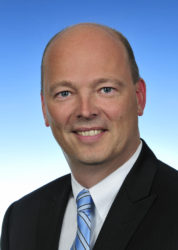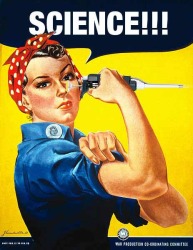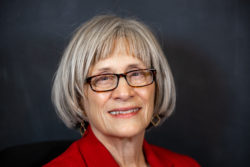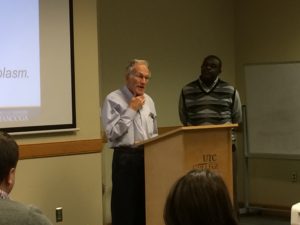Continue reading How & Why I Became a Writer: Part 1 – by Deborah Levine
Category Archives: Levine ADR articles
Articles by Editor of the American Diversity Report
The Art and Civics of Publisher Ruth Holmberg: Making History — by Deborah Levine
 Long before The New York Times had its first woman Executive Editor, Ruth Holmberg was the Editor of The Chattanooga Times. Holmberg is a member of the family that founded both newspapers and she has shared her compelling life story as friends and admirers gathered to hear her speak. Holmberg is a former director of The Associated Press and of The New York Times Company, a former president of the Chattanooga Area Chamber of Commerce and of the Southern Newspaper Publisher Association and a member of the Board of Directors of the Public Education Network (PEN).
The petite, soft-voiced woman is also a member of one of the nation’s most prominent publishing families.
Long before The New York Times had its first woman Executive Editor, Ruth Holmberg was the Editor of The Chattanooga Times. Holmberg is a member of the family that founded both newspapers and she has shared her compelling life story as friends and admirers gathered to hear her speak. Holmberg is a former director of The Associated Press and of The New York Times Company, a former president of the Chattanooga Area Chamber of Commerce and of the Southern Newspaper Publisher Association and a member of the Board of Directors of the Public Education Network (PEN).
The petite, soft-voiced woman is also a member of one of the nation’s most prominent publishing families.
Editor’s note: Publishing icon and Chattanooga civic leader Ruth Holmberg passed away at age 96. In her honor, here is the ADR interview with Ms. Holmberg several years ago.
Continue reading The Art and Civics of Publisher Ruth Holmberg: Making History — by Deborah Levine
Is Women’s History Still Relevant? – by Deborah Levine
Is women’s history and Women’s History Month still relevant today? Is the need for sisterhood activism over as some say? We look back at the first group to advocate for women’s right to vote nationally and see that it was ultimately successful. The Seneca Falls Woman’s Rights Convention was held long ago in1848. But the words of its organizer Elizabeth Cady Stanton still hold true and yet are still controversial, “We hold these truths to be self-evident: that all men and women are created equal.”
That right was opposed for decades by a well-funded anti-suffrage movement that argued most women really didn’t want the vote, and most were unqualified to exercise it. It took 70 years of women activists to convince the country on women’s right to vote.
Continue reading Is Women’s History Still Relevant? – by Deborah Levine
Volkswagen, E week, and Engineering the Future – by Deborah Levine
The Future of Electric Mobility:
Volkswagen’s North American Market

Engineers from regional corporations, agencies, universities, schools, and professional associations, came together to kick off Engineers Week 2017 at The Chattanoogan conference center. Planning for the future was the theme of the Kick-Off Lunch featuring Dr. Burkhard Huhnke, Senior Vice President of e-mobility at Volkswagen America, Inc. Chattanooga is home to Volkswagen’s USA manufacturing plant and it was fitting that Dr. Huhnke shared Volkswagen’s transformation into the era of digitalization. Dr. Huhnke initiated and implemented Europe’s largest test laboratory for automative battery packages and components, worked on Volkswagen’s e-traction projects, e-Golf and e-Up, and currently oversees the product line of Volkswagen’s electrical cars in North American.
Hunke launched e-week 2017 with his presentation, “The Future of Electric Mobility: Volkswagen’s North American Market.” He explained that Electric Mobility combines electrical driving with connectivity and is how transportation and mobility are evolving. Volkswagen is changing and has already launched electric cars. The next generation of VW cars will revamp the entire company as it reflects and adjusts for societal changes.
As Hunke outlined those societal changes, the audience nodded and smiled in understanding and agreement.
1. We are always online. For drivers, this can be dangerous. The fatality numbers on the road are rising. We have to ensure that that distracted driving doesn’t continue.
2. Digitization increasingly connects everything. Transportation is adjusting as companies like Uber emerge and edge out traditional models.
3. Entrepreneurship generates new competitors, such as Tesla, that bring into the market with electronic cars and autonomous driving to the market and widespread public use.
The future that is emerging includes alternative transportation possibilities that will challenge us physically and emotionally. Will we continue to own our own cars? Will we share car ownership? Will drones provide public transportation? Going forward, engineers will be needed to work through all of these challenges and changes.
Volkswagen’s goal is to position itself as the driving force behind electrical mobility. Starting in 2020, Volkswagen will launch a new family of electric cars. By 2025, VW expects to sell one million electric cars. This means a new architecture for the cars: no combustion engines and no plug-in hybrids. It requires getting the internet into the car.
The new Mobility-Service-Eco-System Cars will have a fast-charging battery with a large range. These new batteries will be flat, simple, scalable, and inexpensive. The design gives the extra space back to the driver.
As intelligence is integrated into the car, its features will be continually updated. The e-platform will launch features automatically and integrate users demands and choices. Volkswagen is now researching how to make the design user-friendly across multiple cultures. An understanding of cultural differences is part of making the intelligence applicable whether in New York, Paris, or China.
There will be a shift in the business model to get in front of the consumer more efficiently. Traditionally, the manufacturer and the car dealers partnered in the sale of the cars. In the future, there will be new opportunities, new business players, and new revenue streams, including subscription services. Accommodating customers request for full connectivity through their internet access, the cars will provide fresh software, new features, updates, and the latest apps. Tomorrow’s cars will be “smart devices on wheels.”
One of Hunke’s goals and of the e-week events is to inspire young people to become the engineers of the future. With academic colleagues, Dr. Huhnke initiated the Volkswagen Innovation Center (VAIL) at the Stanford University Campus. He was the project leader for the autonomous car Volkswagen Passat Junior, participating in the Pikes Peak hill climbing driverless Audi TTS. Currently, he is a member of the Board of Advisors at the College of Engineering and Computer Science at the U of TN Chattanooga (CECS at UTC).
 E-week’s connection to education and young people was highlighted at the conclusion of this kick-off event by featuring the presentation of scholarship funding by Chattanoogan companies and organizations to local education institutions. Later in the week, Lulu Copeland, Chattanooga E Week committee coordinator and Executive Director, Economic & Workforce Development at Chattanooga State Community College, planned STEM Girls Day on her campus. The program reflects ongoing efforts to involve young women in Science, Technology, Engineering, and Mathematics.
E-week’s connection to education and young people was highlighted at the conclusion of this kick-off event by featuring the presentation of scholarship funding by Chattanoogan companies and organizations to local education institutions. Later in the week, Lulu Copeland, Chattanooga E Week committee coordinator and Executive Director, Economic & Workforce Development at Chattanooga State Community College, planned STEM Girls Day on her campus. The program reflects ongoing efforts to involve young women in Science, Technology, Engineering, and Mathematics.
The STEM Girls Day and all the organizations involved in E Week, from corporations like Volkswagen to civic groups such as the International Business Council of the Chattanooga Area Chamber of Commerce, illustrate how a small Southern City can be at the forefront of our innovative future.
The Politics of Political Correctness – by Deborah Levine
I sat in the audience of a university theater and listened to elected officials and professors ruminate on inclusion in the upcoming political election. It was Chicago in the 1990s and as in-your-face then as it is now. The discussion over race was loud and raucous as the candidates, Caucasian and African American, went toe to toe. As the debate turned to women, the all-male stage veered into the surreal. It turned into a shouting match as to who was more popular with the ladies. They gestured wildly about the numbers of women who called them, trying to prove that who was the more politically correct and more popular among the ladies.
Continue reading The Politics of Political Correctness – by Deborah Levine
Managing Religious Differences When Demonizing Drowns Out Listening – by Deborah Levine
Anyone listening can hear the loud, raucous controversies surrounding religion and our religious differences. The conversation is rife with words such as terrorism, hate, threatening, ungodly, illegal, and inhumane. The effect of this volcanic environment is to make our adrenalin run so high and long that we are virtually unable to hear the human beings involved. As hyperbole and exaggeration are added, we are witnessing a vicious cycle of protests and counter-protests, threats and counter-threats. Can this cycle be broken, or at least interrupted long enough for us to stop yelling, listen effectively, and initiate some major problem solving?
The Women March … AGAIN – by Deborah Levine
The 2017 Million Women March on Washington approaches, along with about 30 sister marches around the country, including in New York City. It’s been forty-seven years since I marched down 5th Ave. for the Women’s Movement. Why did I go when my goal for that trip to Manhattan was to find a job? Entering an employment agency, I insisted on sitting at the men’s table rather than with the women who were required to take a typing test. When my persistence was met with a threat to call the police to eject me, I made my way to 5th Ave. and joined the March.
Continue reading The Women March … AGAIN – by Deborah Levine
Cross-Cultural Skills, Leadership, and Marketing in the Future — by Deborah Levine

Cross Cultural Expertise is the marketing leadership tool of a future that’s coming for us like a high speed train. While that train may go through tunnels and across challenging terrain with a new administration, technology is shrinking our world and that train is gathering speed. Our workforce, our suppliers, and, above all, our marketing professionals need the skill set of cross-cultural communication, cultural competence, conflict management, and problem solving. They are the fuel to compete in the future and without them, the train may miss its target destination and risk derailment.
Continue reading Cross-Cultural Skills, Leadership, and Marketing in the Future — by Deborah Levine
Legacy of a Chemical Engineering Professor: Dr. Frank Jones – by Deborah Levine

The room was packed at the College of Engineering and Computer Science (CECS) as faculty, students, and graduates gathered to celebrate the life of one of their own and mourn his passing. Dr. Francis Joseph Jones (1951-2016) was a UC Foundation Professor and the Chemical Program Coordinator at CECS at the University of Tennessee at Chattanooga. The CECS memorial was like an old-fashioned wake with shared stories and heartfelt testimonials for the man that colleagues and family knew as “Frank.”
Continue reading Legacy of a Chemical Engineering Professor: Dr. Frank Jones – by Deborah Levine
Expats and their Families – by Deborah Levine
Expats Chattanooga Style
The attendees at the International Business Council (IBC) of the Chattanooga Area Chamber of Commerce were a diverse mix of nationalities, professions, expats, and industries. The annual meeting of the IBC, the Chamber’s newest council, attracted students, family members, colleagues, and executives. The diverse crowd illustrated the broad participation in Chattanooga’s national and international booming growth. (Photo by Suzanne Ocsai)
Continue reading Expats and their Families – by Deborah Levine

